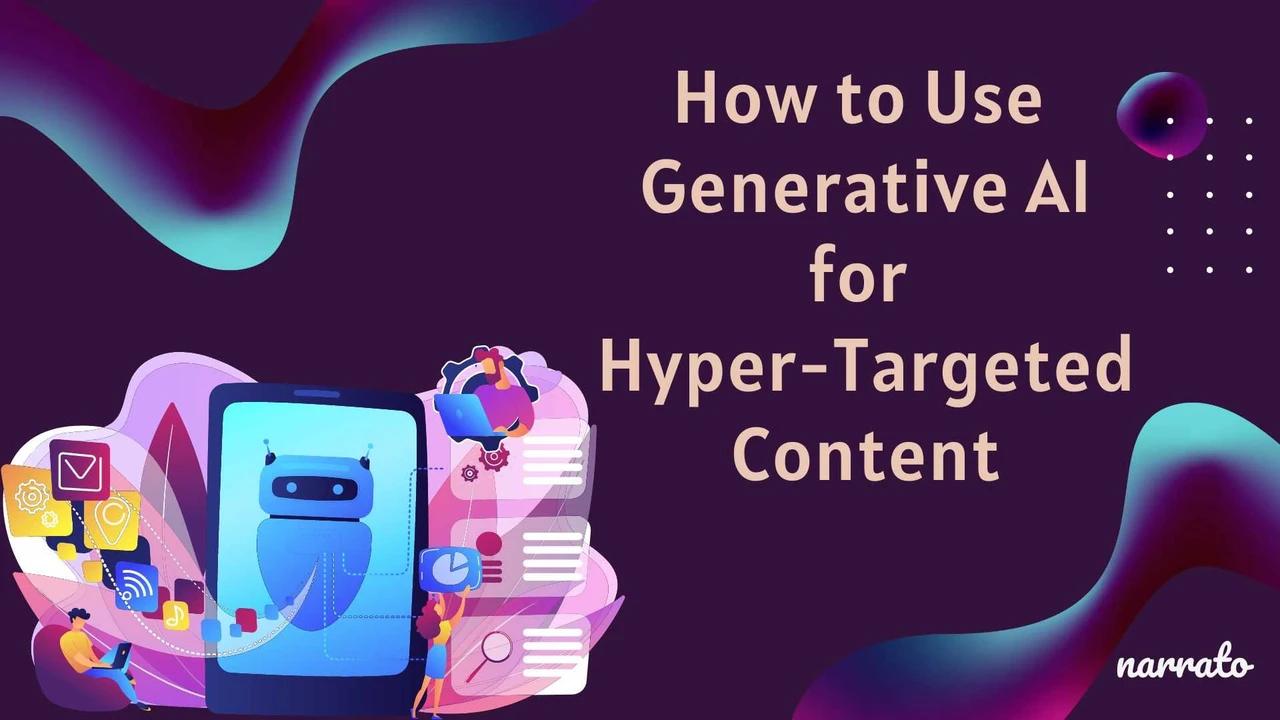AI and the Environment: Sustainable Solutions for a Greener Future
Discover the best AI blogs to follow, featuring top AI experts and thought leaders. Stay informed about the latest trends, insights, and breakthroughs in artificial intelligence. Get recommendations for the most informative AI blogs.

Why You Should Follow AI Blogs Featuring Top AI Experts
Alright, let's face it: artificial intelligence is moving at warp speed. One minute you're trying to figure out what "neural network" even means, and the next, everyone's talking about AGI (Artificial General Intelligence) and the existential threat it poses. Staying on top of the game requires more than just a casual Google search now and then. That's where AI blogs come in, especially those curated by or featuring top AI experts and thought leaders. These blogs offer a deep dive into the latest trends, breakthroughs, and debates shaping the future of AI. They provide nuanced perspectives, practical insights, and, crucially, help you separate the hype from the reality. Following these blogs is like having a personal AI mentor in your pocket, guiding you through the complex landscape and helping you make sense of it all.
Benefits of Reading AI Blogs Regularly For AI Professionals
Seriously, reading AI blogs regularly is a game-changer for anyone working in or around the AI field. Here's why:
- Stay Updated on the Latest Trends: AI is constantly evolving. Blogs keep you abreast of new algorithms, frameworks, and applications.
- Gain In-Depth Knowledge: Beyond surface-level news, blogs offer detailed explanations and analyses of complex AI concepts.
- Learn from Experts: Get insights from leading researchers, engineers, and practitioners in the field.
- Discover New Tools and Resources: Many blogs feature reviews and recommendations for AI tools, datasets, and libraries.
- Improve Your Problem-Solving Skills: By reading about how others are tackling AI challenges, you can develop your own problem-solving abilities.
- Network and Connect: Engage with the AI community by commenting on blog posts and participating in discussions.
- Boost Your Career: Staying informed about AI trends can make you a more valuable asset to your organization and open up new career opportunities.
Top AI Blogs You Should Be Following Right Now For AI Insights
So, which blogs should you be adding to your reading list? Here are some of the top AI blogs, featuring leading experts and thought leaders, that you should be following right now:
- Distill: This blog is all about visual explanations of machine learning concepts. It's perfect for building intuition and understanding the inner workings of AI algorithms. The articles are incredibly well-researched and beautifully presented.
- OpenAI Blog: Straight from the source! The OpenAI blog provides updates on their groundbreaking research projects, including GPT models, DALL-E, and more. It's a must-read for anyone interested in the cutting edge of AI.
- Google AI Blog: Similar to OpenAI, the Google AI Blog offers insights into Google's AI research and development efforts. You'll find articles on a wide range of topics, from computer vision to natural language processing.
- DeepMind Blog: DeepMind, another leading AI research lab, publishes articles on their work in areas such as reinforcement learning, game playing, and robotics. Their blog is known for its rigorous research and innovative approaches.
- The Batch by Andrew Ng: Andrew Ng, a renowned AI educator and entrepreneur, curates this newsletter with a selection of top AI news and insights. It's a great way to stay informed about the most important developments in the field.
- Lex Fridman Podcast: While technically a podcast, Lex Fridman's interviews with leading AI researchers, philosophers, and thinkers are incredibly insightful. He explores the philosophical implications of AI, as well as its practical applications.
- Towards Data Science: This Medium publication features a wide range of articles on data science, machine learning, and AI. It's a great resource for learning about practical AI techniques and tools.
- Machine Learning Mastery: Dr. Jason Brownlee's blog provides practical tutorials and guides on machine learning algorithms and techniques. It's a great resource for beginners and experienced practitioners alike.
- AI Trends: This blog focuses on the business and societal implications of AI. It covers topics such as AI ethics, AI policy, and the impact of AI on various industries.
- Synced Review: This publication provides in-depth coverage of AI research and industry news. It's a great resource for staying up-to-date on the latest developments in the AI field, particularly in China.
- The Algorithm by MIT Technology Review: This newsletter, run by Karen Hao, provides critical analysis of the ethical, social, and political implications of artificial intelligence. It's a must-read for anyone concerned about the responsible development and deployment of AI.
Diving Deeper Specific AI Blogs and Their Focus Areas
Let’s break down some of these blogs a bit more to see what makes them unique:
- Distill: Imagine you’re trying to understand how a convolutional neural network works. Instead of reading a dense research paper, Distill presents the information with interactive diagrams and animations. You can literally *see* how the network processes images, making complex concepts much easier to grasp. This is fantastic for visual learners.
- OpenAI Blog: This is where you get the inside scoop on groundbreaking AI projects like GPT-3 and DALL-E 2. They often release technical papers alongside the blog posts, so you can really dig into the details if you want. Plus, following the OpenAI blog gives you a sense of the direction AI research is heading.
- Google AI Blog: Similar to OpenAI's blog, this one showcases Google's diverse AI efforts. You'll find posts on everything from improving search algorithms to developing new medical diagnostic tools. It’s a broad overview of how AI is being applied across different industries.
- The Batch by Andrew Ng: Think of this as your weekly AI news digest. Andrew Ng cuts through the noise and highlights the most important developments in the field. It's a quick and efficient way to stay informed without getting overwhelmed.
Practical Applications How AI Blogs Can Help You At Work
Okay, so you’re reading these blogs… how does that actually translate into tangible benefits at work?
- Identifying New Opportunities: By staying informed about the latest AI trends, you can spot potential opportunities for your company to leverage AI. Maybe you read about a new natural language processing technique that could improve your customer service chatbot.
- Improving Your Skills: Many AI blogs offer tutorials and guides on practical AI techniques. You can use these resources to improve your coding skills, learn how to use new AI tools, or deepen your understanding of machine learning algorithms.
- Making Better Decisions: By reading about the successes and failures of other AI projects, you can learn from their experiences and avoid making costly mistakes.
- Communicating Effectively: Understanding the technical details of AI can help you communicate more effectively with engineers and other technical professionals.
Beyond the Blogs Exploring AI Newsletters and Podcasts
Don't limit yourself to just blogs! AI newsletters and podcasts are also fantastic resources for staying informed.
- Newsletters: Besides The Batch, check out Import AI (by Jack Clark), Ben's Bites, and AI Weekly. These newsletters deliver curated AI news and insights directly to your inbox.
- Podcasts: In addition to Lex Fridman, consider the TWIML AI Podcast (formerly This Week in Machine Learning), the AI in Business Podcast, and the Practical AI Podcast. These podcasts feature interviews with AI experts and discussions on a wide range of AI topics.
Specific AI Products and Tools Recommended by AI Blogs and Experts
Many AI blogs and experts recommend specific AI products and tools. Here are a few examples:
-
TensorFlow (Google): An open-source machine learning framework widely used for building and training AI models. It's flexible, scalable, and has a large community of users. (Free)
- Use Case: Image recognition, natural language processing, predictive analytics.
- Blog Recommendation: TensorFlow's official website and various tutorials on Towards Data Science.
-
PyTorch (Facebook): Another popular open-source machine learning framework, known for its ease of use and dynamic computation graph. (Free)
- Use Case: Research, prototyping, and building AI applications.
- Blog Recommendation: PyTorch's official website and numerous tutorials on Medium.
-
Hugging Face Transformers: A library for natural language processing that provides pre-trained models and tools for fine-tuning them on specific tasks. (Free and Paid versions)
- Use Case: Sentiment analysis, text summarization, machine translation.
- Blog Recommendation: Hugging Face's blog and various tutorials on Towards Data Science.
-
DataRobot: An automated machine learning platform that helps businesses build and deploy AI models without requiring extensive coding. (Paid)
- Use Case: Predictive maintenance, fraud detection, customer churn prediction.
- Blog Recommendation: DataRobot's official blog and case studies.
-
Amazon SageMaker: A fully managed machine learning service that enables developers and data scientists to quickly build, train, and deploy machine learning models at scale. (Paid)
- Use Case: Building custom AI solutions, deploying models to production.
- Blog Recommendation: Amazon AWS AI Blog and AWS documentation.
Comparing Popular AI Products Choosing the Right Tool For Your Needs
Choosing the right AI tool can be tricky. Here's a brief comparison of some popular options:
- TensorFlow vs. PyTorch: Both are excellent choices. TensorFlow is generally preferred for production deployments due to its scalability, while PyTorch is often favored for research due to its flexibility and ease of use.
- Hugging Face Transformers vs. Other NLP Libraries: Hugging Face Transformers is a game-changer for NLP. It provides access to a vast library of pre-trained models, making it easy to get started with NLP tasks.
- Automated ML Platforms (e.g., DataRobot) vs. Building Models from Scratch: Automated ML platforms are great for businesses that need to quickly build and deploy AI models without extensive coding expertise. However, building models from scratch provides more control and flexibility.
Estimated Costs of AI Tools and Resources Budgeting for AI Projects
The cost of AI tools and resources can vary widely depending on the specific project. Here are some general guidelines:
- Open-Source Frameworks (TensorFlow, PyTorch): These are free to use, but you'll need to factor in the cost of hardware (e.g., GPUs) and cloud computing resources for training models.
- Cloud Computing Platforms (AWS, Google Cloud, Azure): These platforms offer a pay-as-you-go pricing model for AI services. The cost will depend on the amount of computing resources you use.
- Automated ML Platforms (DataRobot, H2O.ai): These platforms typically charge a subscription fee based on the number of users and the features you need.
- Data Acquisition: Acquiring high-quality data can be expensive, especially for specialized datasets.
- AI Talent: Hiring experienced AI engineers and data scientists can be a significant expense.
The Importance of Critical Thinking When Reading AI Blogs
While AI blogs are valuable resources, it's important to approach them with a critical eye. Not all information is created equal, and it's essential to be able to distinguish between reliable sources and hype.
- Consider the Source: Is the blog run by a reputable organization or individual?
- Look for Evidence: Are the claims supported by data or research?
- Be Wary of Hype: Is the blog promoting a particular product or technology?
- Cross-Reference Information: Don't rely on a single source of information.
Staying Ahead of the Curve Resources for Continuous AI Learning
The AI field is constantly evolving, so it's important to commit to continuous learning. Here are some additional resources to help you stay ahead of the curve:
- Online Courses: Platforms like Coursera, edX, and Udacity offer a wide range of AI courses taught by leading experts.
- Conferences and Workshops: Attend AI conferences and workshops to network with other professionals and learn about the latest research.
- Research Papers: Read research papers to stay up-to-date on the cutting edge of AI.
- Community Forums: Participate in online forums and communities to discuss AI topics with other enthusiasts.
Final Thoughts Embracing the AI Learning Journey
Following AI blogs and engaging with the AI community is a crucial step in your AI learning journey. By staying informed about the latest trends, learning from experts, and critically evaluating information, you can position yourself for success in the rapidly evolving world of artificial intelligence. It's a continuous process, so embrace the challenge and enjoy the ride!
:max_bytes(150000):strip_icc()/277019-baked-pork-chops-with-cream-of-mushroom-soup-DDMFS-beauty-4x3-BG-7505-5762b731cf30447d9cbbbbbf387beafa.jpg)






